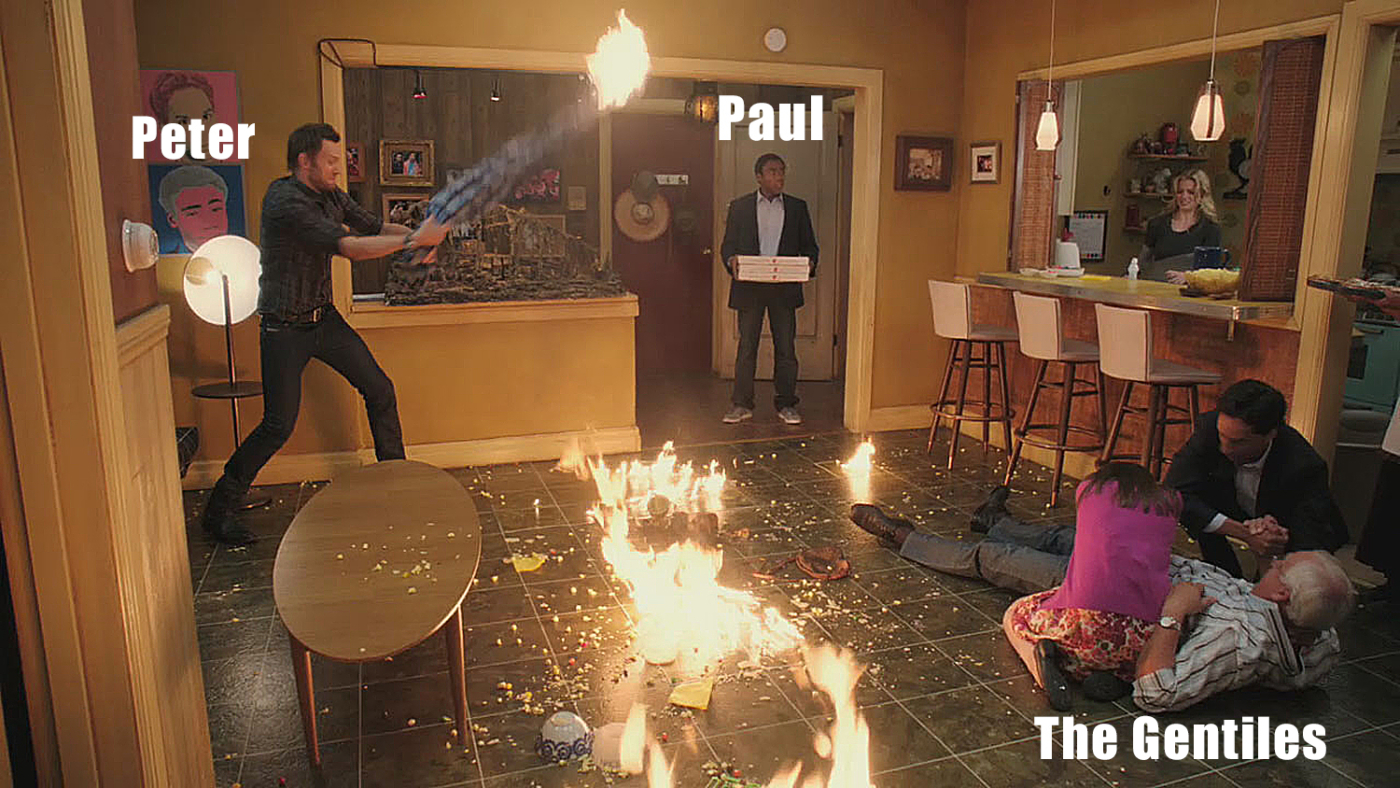Paul writes in Romans 6:7, “For he that is dead is freed from sin.” That sentence almost takes my breath away, but also begs the question of how that death is accomplished? We read in Romans 7:5 that the fruit of the works of the law is death. Always has, and always will. The law comes to kill us and lead us to Christ, liberty, and the newness of resurrected life. Paul writes earlier in Romans 6, “How shall we, that are dead to sin, live any longer therein?” If the law has done what it was sent to do, then living to sin sounds downright impossible because you are dead. That is really good news.
But there is one transgression Paul will not stand for, that frustrates or nullifies the grace of God through works. He writes in Galatians 2:18, “For if I build again the things which I destroyed, I make myself a transgressor.” For Paul, that is now the ultimate transgression and a surefire way of nullifying God’s grace.
In Gerhard Forde’s book Justification By Faith: A Matter of Death and Life, he speaks about this verse and comments, “If I now ‘chicken out’ on grace and justification by faith, then I am really a transgressor. If I succumb to the law and legalism I really sin!” The big no-no sin is going back to moralism and works righteousness.
Paul gives a great example and shows us just how easily it can happen with his confrontation with Peter. When Jerusalem big-wigs came to town, Peter changed his tune. He started keeping kosher again and ghosted the Gentile Christians. Paul sees this happen and confronts Peter with a stinging rebuke. Peter had given up his Christian liberty, forsaking unlawful food and unlawful crowds to go back to rebuilding what was torn down. He runs right back to moralism and sadly convinces others to do the same. But Paul sees this for what it is: justification by works.

Peter was an influential guy. He probably told stories about Jesus to these Gentile converts. He saw dead people raised, walked on water, and physically touched the resurrected Jesus. Through his actions, Peter is compelling Gentiles to live by the law and some translations say forcing them to live by the law. I find it astonishing to see how seriously Paul takes this situation and how Paul views the effects of Peter’s moralism on other followers.
Peter should have known better. He’s dealt with this issue multiple times in his life (Acts 10-11). He knows food and drink and our actions do not justify us. He knows just as well as Paul does that we are not responsible for our justification. His return to moralism paradoxically makes him a transgressor. The only way to nullify grace is to return to the law.
Peter’s hypocrisy shows us just what falling from grace looks like. None of us are immune to going back to justification by works. The old Adam knows how to creep back up again. The cross of Christ and the empty tomb have to beat the hell out of it. Peter’s moralism undermined the gospel, putting an obstacle to righteousness by faith in front of his uncircumcised Gentile friends. Peter nullified the grace of God by modeling righteousness by some means other than faith. He is trying to rebuild what Christ tore down. Just like Uzzah, touching the Ark of God in an effort to help steady it, Peter is trying to help God and give some assistance to his salvation. Righteousness can’t come that way.
Martin Luther writes, “Thus Peter’s actions pollute not only the purity of the doctrine but also the truth that the keeping of the law was necessary for righteousness. If this error had been allowed, then Christ would have been altogether worthless.”
Good works work against us. Grace is not a license to moralism. Moralism is bad news. We have begun in the spirit and cannot be made perfect by the flesh. It starts with grace and stays that way. Again, Luther says that “works only make them into greater sinners. They do not pacify the wrath of God. Instead, they provoke it. They do not obtain righteousness. Instead, they hinder it. They do not give life. Instead, they kill and destroy.”
I grew up in the law, gaining salvation by works. The concept of losing my salvation was always in front of me. That moralism was bad news, deadly in fact. But the true, good news of Christianity points not to me, but to Jesus — his righteousness, his empty tomb. We receive justification one way and one way only: through faith in Jesus Christ.

COMMENTS
Leave a Reply












